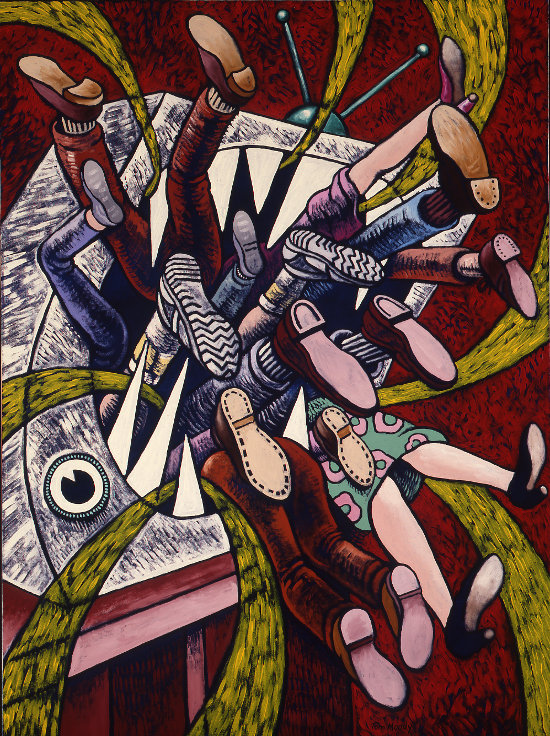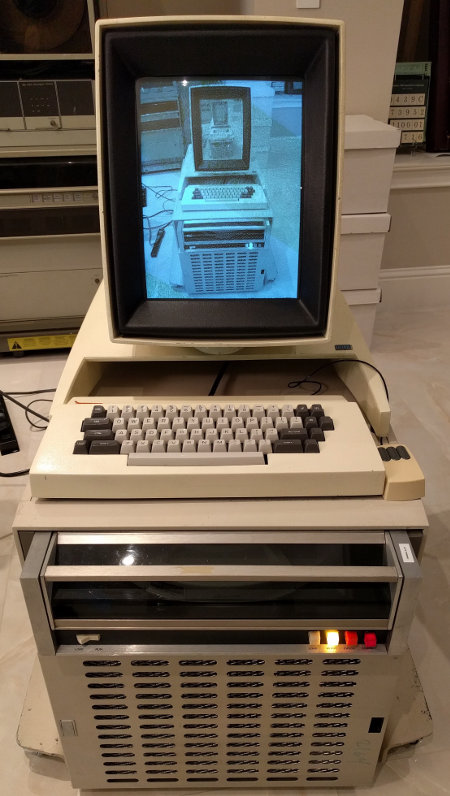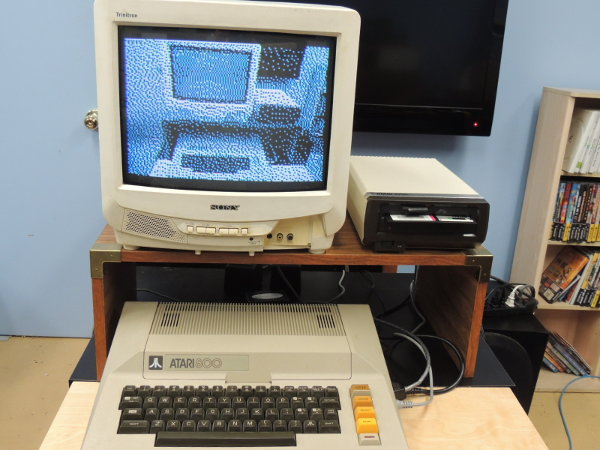On the subject of recursive images, this post about Ken Shirriff's nested Alto computers reminded me of an earlier idea. In the late '80s I'd been invited to show in an exhibit on the theme of television, organized by some artists who did public access cable. The venue was a "major museum" so I wanted to make a statement. I had the idea of televisions in toilets receding to infinity. I couldn't make it work -- drawing a toilet seat is easy but it was hard to make a TV monitor that "popped" in the arrangement. Below is as far as I went with it:
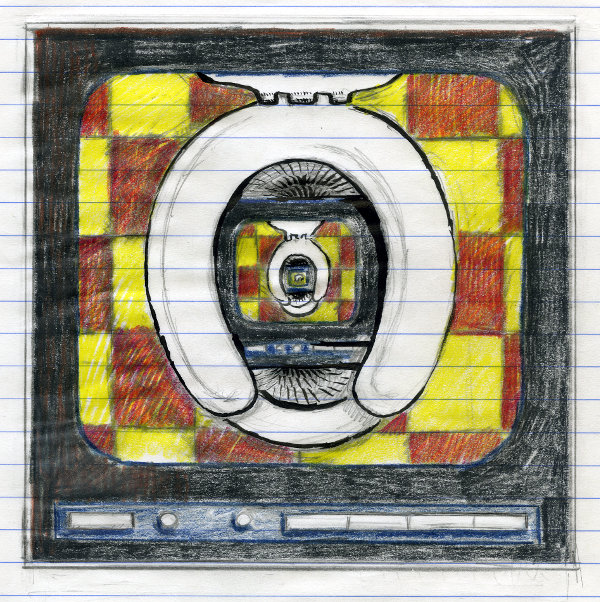
An initial sketch:
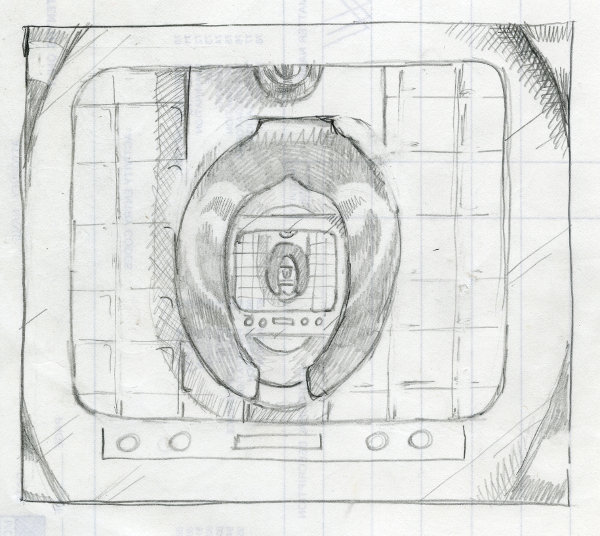
After abandoning these I did this painting, TV Dinner (acrylic on canvas, 62 x 46 inches). The museum had a Philip Guston show up at the time and a local curator thought my painting was "derivative." One person's inside joke is another's failure of imagination.
